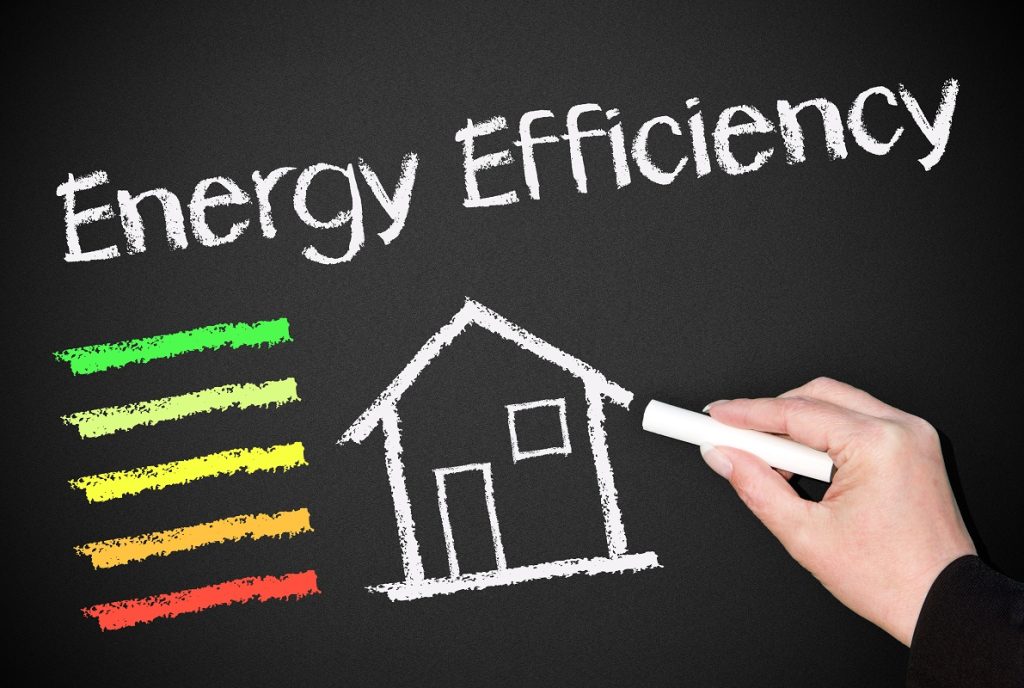- Enhancing energy efficiency is beneficial for both the environment and your wallet.
- Upgrade insulation to minimize heat loss and reduce strain on heating and cooling systems.
- Opt for energy-efficient appliances with Energy Star labels or high ratings.
- Invest in smart technology like thermostats, lighting systems, and energy monitors for convenience and better control of energy consumption.
- Utilize renewable energy sources like solar panels to reduce carbon footprint and dependence on non-renewable energy.
Making your property more energy-efficient is not just a sustainable choice; it’s also a smart economic decision. Energy-efficient homes often translate into reduced utility bills and increased property value, providing long-term benefits. Below are five practical tips to enhance the energy efficiency of your property.
1. Upgrade Insulation Systems
Proper insulation is pivotal in maintaining an energy-efficient home. It serves as a barrier, minimizing the heat exchange between your property’s interior and exterior. This results in less strain on your heating and cooling systems, leading to lower energy consumption.
Invest in high-quality insulation materials and ensure they are correctly installed. Pay attention to areas prone to heat loss, such as the attic, walls, and floors. Well-insulated homes maintain a comfortable temperature with less energy, contributing to a more sustainable and economical living environment.
2. Opt for Energy-Efficient Appliances
When purchasing appliances, consider their energy efficiency ratings. Energy-efficient appliances are designed to utilize minimum energy to complete their tasks, helping you save on electricity bills while being environmentally friendly.
Look for products with Energy Star labels or high energy-efficiency ratings. These appliances might be more expensive upfront but will save you more long-term due to their lower operating costs. Adopting energy-efficient appliances is a step towards a greener and more cost-effective household.
3. Invest in Smart Technology
Smart home technology provides convenience and significantly contributes to energy efficiency. Devices like smart thermostats, lighting systems, and energy monitors allow you to remotely control and optimize your home’s energy consumption.
Here are the types of smart technology that you can invest in:
Smart Thermostats

Smart thermostats are among the most popular and efficient forms of smart home technology. They utilize advanced algorithms and sensors to learn your temperature preferences and adjust accordingly, saving energy. Some models even have geofencing capabilities, which detect when you’re away from home and adjust the temperature to save energy until you return.
Additionally, smart thermostats provide real-time data and insights on your energy usage, helping you further identify patterns and make informed decisions on optimizing your heating and cooling systems. With the ability to control it remotely through a mobile app or voice command, smart thermostats offer convenience and energy efficiency all in one package.
Smart Lighting Systems
Another popular form of smart technology is the smart lighting system. These systems use energy-efficient LED bulbs and can be programmed to turn off when not in use, saving energy and money on your electric bill. Some models also have sensors that detect natural light and adjust the brightness accordingly, reducing energy waste.
Moreover, some smart lighting systems have features like voice control, scheduling, and remote access through a mobile app. This allows you to turn off lights when not needed, even if you’re not home, helping you save energy and money in the long run.
Energy Monitors
Energy monitors are devices that track your energy consumption in real time. They connect to your home’s electrical panel and provide insights into how much energy each appliance and circuit uses. With this data, you can identify and eliminate energy-wasting habits or appliances, ultimately reducing your energy bill.
Some advanced energy monitors even offer features like real-time cost tracking, carbon footprint calculation, and personalized recommendations on optimizing your energy usage further. By investing in an energy monitor, you not only save money but also contribute to a cleaner and more sustainable environment.
Smart Outlets
Smart outlets are a versatile addition to your smart home setup. They allow you to remotely control any device plugged into them through a mobile app, meaning you can turn devices on or off from anywhere, even when you’re away from home. This is particularly useful for items that consume much energy, like space heaters or window air conditioning units.
Some smart outlets also monitor energy usage, providing valuable data that can help you reduce unnecessary energy consumption and lower utility bills. With their easy installation and user-friendly operation, smart outlets are a beneficial investment for any energy-conscious homeowner.
4. Utilize Renewable Energy Sources

Implementing renewable energy solutions is an excellent way to reduce your property’s carbon footprint and energy expenses. Consider installing solar panels, which convert sunlight into electricity, providing a clean and sustainable energy source.
You may explore renewable options like wind or geothermal energy if your location permits. These systems might require a significant initial investment but will provide long-term savings and contribute to preserving the environment by reducing dependence on non-renewable energy sources.
5. Obtain Relevant Certifications
Having relevant property certificates is crucial in verifying your home’s energy efficiency. Certifications such as the Energy Performance Certificate (EPC) provide a detailed assessment of your property’s energy use and recommendations for improvement.
Acquiring property certificates not only validates your efforts towards energy efficiency but also increases the value of your property. Prospective buyers or tenants often prioritize energy efficiency, making certified properties more appealing and marketable. These certificates are a benchmark for energy efficiency, guiding you and others in making informed and sustainable property choices.
In Closing
Enhancing the energy efficiency of your property is a responsible and economical practice that provides immediate and long-term benefits. You create a sustainable, eco-friendly, cost-effective living or working space by upgrading insulation, choosing energy-efficient appliances, investing in smart technology, utilizing renewable energy, and obtaining relevant property certificates. Each step towards energy efficiency contributes to a more sustainable and economically savvy future for yourself and the wider community.







